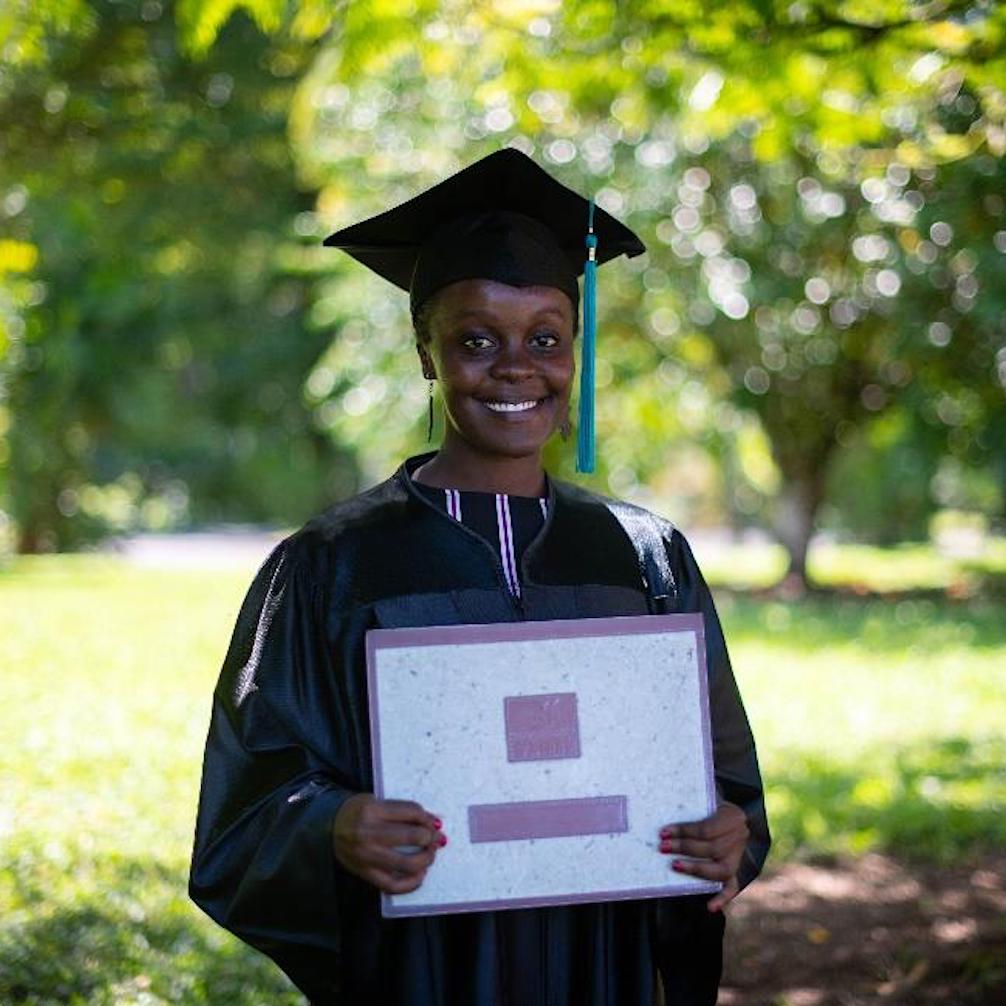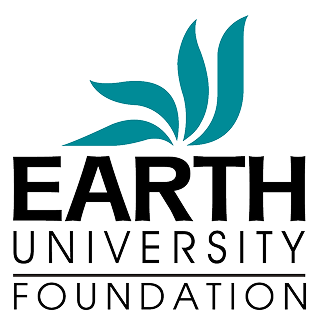
Diana Wairimu Njuna
Class of 2019 - 2022, Kenya, Mastercard Foundation Scholar
Diana Wairimu Njuna
Diana’s graduation project is about biological alternatives for a nematicide to control the Meloidogyne incognita pest in tomato plants. This was inspired by a social venture Diana created back home in Kenya called the Vermi-Farm Initiative, where she produces solid and foliar fertilizer from market waste decomposed by earthworms. Diana’s graduation project utilizes the solid fertilizer collected from these earthworms as a treatment to reduce nematode populations. “Over the years of being a student at EARTH University, the world is moving towards green technology and sustainability,” she says. “There is increased need of reducing the chemicals used and looking for other viable options that will benefit the farmer, the environment, and the soil.”
Last year, at Pennsylvania State University, Diana interned in the department of Plant Pathology and Environmental Microbiology under Dr. Esker. Her internship objectives included learning more about genetic diversity, fungicide sensitivity, and the influence of fungi and pathogens in crops such as soybeans and corn. It was over the course of this internship that Diana became invested in working on diseases in vegetables, as pests affect vital plants such as tomatoes in both Costa Rica and Kenya. Inspired by her findings in plant pathology, she hopes to apply them in future agricultural projects: “The results I found can be a value addition for marketing a product of compost fertilizer back in Kenya.” However, Diana also wanted to spend part of her internship getting involved in community service, so she volunteered at PSU’s arboretum, weeding and helping prepare for the annual pumpkin festival, and served free weekly dinners at the community café.
Currently, Diana is a leader of solid waste management at EARTH, directing work experience for first- and second-year students. “I have learned to be accommodating and patient with the students, and also to be accountable and responsible in preparing activities for the whole semester,” she says. The role has taught her how important it is to communicate clearly and follow through with her responsibilities, but it has also shown her how to adjust to students’ different interests and learning styles. Leading work experience has been one of many learning opportunities at EARTH University – Diana is thankful that she has gotten to socialize and collaborate on projects with people from countries all over the world.
She will greatly miss spending time with friends and staff at EARTH, and is treasuring her memories in the final weeks before she graduates.
After graduation, Diana aims to pursue a master’s degree in plant pathology at South Dakota State University. During that time, she plans to apply for funding, studying solid waste management, and reconnecting with professors at EARTH for support. In the long term, Diana wants to seek employment in the Ministry of Agriculture while sustaining her work at Vermi-Farm Initiative, her social venture project. She is also considering working as a consultant for plant diseases and assisting fellow farmers in Kenya. Diana’s family has faced many pest and natural disaster issues on their farm, and these problems have inspired her to pursue plant pathology to help her community back home. “The experiences my father had on our farm, and the problems farmers there are facing, are because they don’t have the right knowledge,” she says. “I’d love to be of help to them in tough times.” In addition, she also aims to give back by mentoring students and helping them find scholarships to study abroad. “Where we come from, education is very important. Now that I have knowledge after coming to EARTH … I’d like to also help people so they can benefit from these scholarships.”
Indeed, for Diana, the Mastercard Scholarship has fundamentally changed her life’s trajectory and enabled her to stay connected to home while getting an outstanding education. She was able to travel to the United States for her internship, participate in this year’s Baobab Summit in Rwanda, and receive funding from the Mastercard Resolution Project to make her ideas into a reality.
